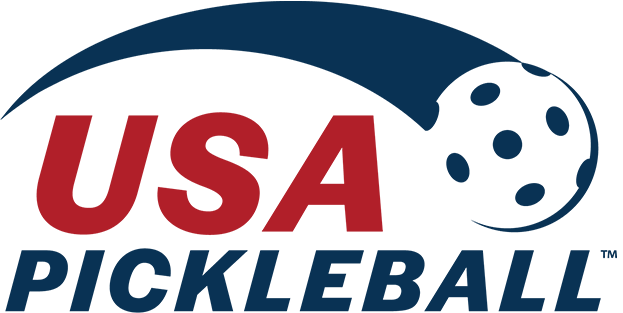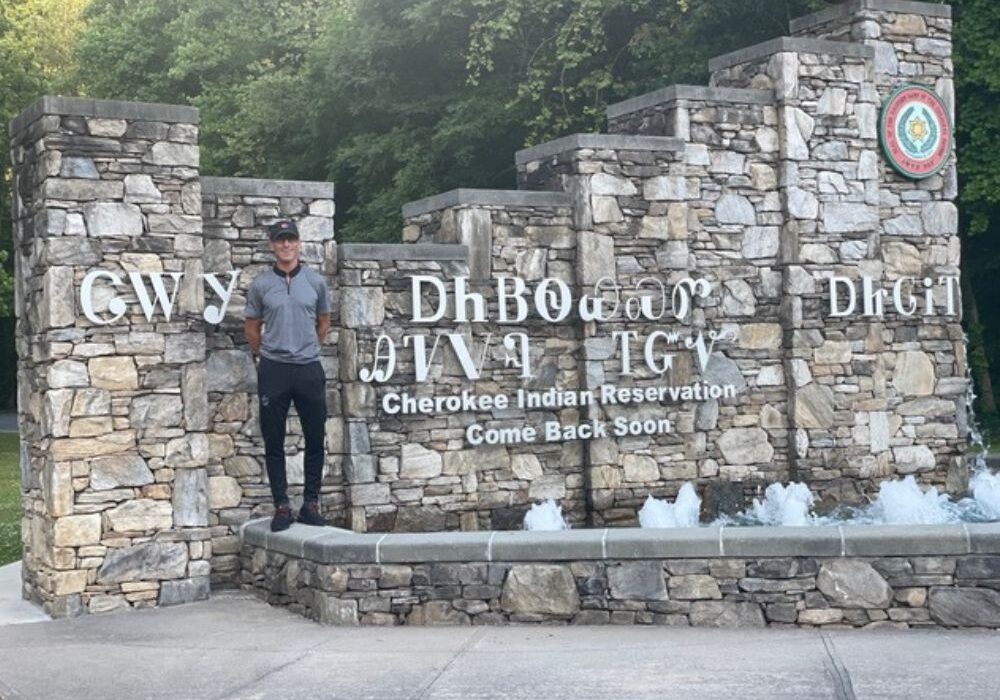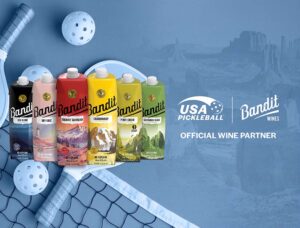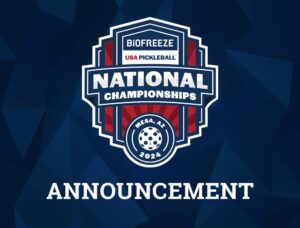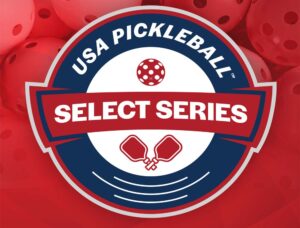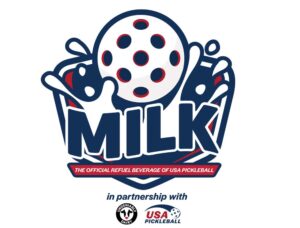Pete Peterson Is Helping Bring Pickleball To Native American Communities
By Steve Drumwright
Red Line Editorial
Pete Peterson is a tennis guy. There is no questioning that. He has more than 75,000 hours on the court as a player, coach and tennis pro. He’s won an over-35 world title and even coached an eventual Wimbledon doubles champion.
But Peterson’s love for tennis led him to a new opportunity that’s quickly become a passion.
Pickleball on Native American reservations.
Peterson, a member of the Eastern Band of Cherokee Indians, has long been aware of the wealth of untapped athleticism on reservations across the U.S. At a time when working as a tennis pro at a country club was no longer satisfying his drive, the suddenly chic sport of pickleball was taking the nation — and tennis courts — by storm. Through the Serving Love Foundation, which he co-founded, he was able to combine his passion for racquet sports with an underserved community.
“We’re really getting some momentum,” Peterson said. “We’re going with the health and wealth wellness initiative to where we’re going to create programs. The cool thing about pickleball is kids can play it, teams can play it, adults can play it and seniors can play it. I envision family competitions and community and really a great chance to build community wellness.”
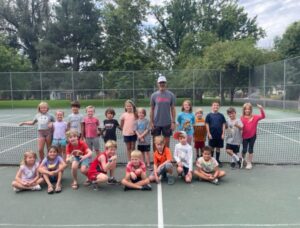
That is the big difference between pickleball and tennis, Peterson said: Learning to play tennis takes extended time (think months), while anyone — regardless of age or skill level — can easily grasp pickleball in two 45-minute sessions and jump into a pickup game. Think of it as akin to bowling or curling, he said, as opposed to something more complicated such as football or baseball.
Basketball is a big sport on Native American reservations, as evidenced by the upcoming LeBron James-produced Netflix film “Rez Ball,” which is based on a nonfiction book by Michael Powell called “Canyon Dreams.” There is also a fiction book called “Rez Ball” by Byron Graves.
One inherent challenge with basketball, however, is that athletes typically need certain physical attributes — i.e. height — to take the sport to the next levels. Pickleball could be an ideal alternative, Peterson said. The only equipment needed is a paddle and a ball; being small and quick can be a decisive strength.
“Basketball is the No. 1 sport Native country,” Peterson said, “but really, you give me the next 20 kids that don’t make the basketball team and I’ll give you a national champions kind of thing (in pickleball). Because we’re good athletes that are competitive, that really need some hope and some opportunity to do something.”
The Serving Love Foundation has been building up pickleball participation for about the last year, with programs at five reservations. All of that is creating a foundation, which Peterson hopes to put on display at the 1st Native American Pickleball Championship set for Nov. 17-19 in Oklahoma City, Oklahoma.
With Oklahoma steeped in Native American culture — it has more than three dozen federally recognized tribes, third-most of any state behind Alaska and California — Peterson is hoping that the tournament is a launching pad for other reservations across the country. There will also be a fundraising tournament that includes non-Natives held in conjunction with the Native American bracket.
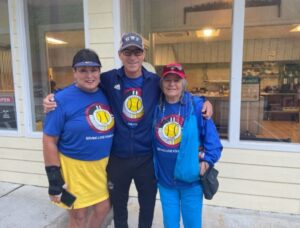
“Anything we get, we’re going to be happy with,” Peterson said of the expected turnout. “That’s our first one. ... We’re hoping for 50 Native Americans. ... Just fingers crossed that we can get some people interested and get some good press and create that awareness so we can continue to build that.”
Most of all, Peterson is just trying to create another outlet for Native Americans to have a healthy lifestyle. As an example, Peterson runs a community pickleball program in Boise, Idaho, that operates out of a homeless shelter.
“I never would have believed it myself, as positive as I want to be and I’m supposed to be,” Peterson said. “People that have to be there that are either in an addiction group or a mental health group are going up and doing their thing (with pickleball) and get the blood pumping, get some sunshine, get hitting balls, get their mind active and body active. ... It’s like getting a workout without feeling like you’re doing a workout.”
The simplicity and accessibility of pickleball is why Peterson feels it can be successful on more Native American reservations.
“(We are) a bunch of sportsmen and survivors,” Peterson said. “We’ve been surviving and thriving here for thousands of years. It’s just a matter of getting us in the right sport, creating that hope and opportunity and let it play. ... I’m a competitor and a people-builder and -maker, and I really think this platform can do that.”
Steve Drumwright is a journalist based in Murrieta, California. He is a freelance contributor to USA Pickleball on behalf of Red Line Editorial, Inc.
